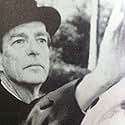In Portrait of the Artist as a Young Man, James Joyce pokes a little fun at Stephen Daedelus' aesthetics. Daedelus says there are two extremes in art--the kinetic and the static. Static art is beauty of the mind, or Apollonian beauty. Kinetic is more akin to sexual desire, or Dionysian beauty. Though Joyce found this theory to be rife for satire, albeit gentle satire, I think the distinction is compelling.
This film is in part about this distinction, or rather the absence of it in one man. For Charles Bremer, all beauty is erotic. For some reason, emotional or physical, he can't participate in the act of love, so he sublimates it into art. For him, seeing a beautiful painting or a beautiful woman undressing are two instances of the same thing, both equally erotic and equally profound.
All this babble makes the film sound pretentious, but in practice it is actually almost completely unpretentious. It has something profound to say, but it says it very simply. If there is a little bit of Charles in you, you will understand this film implicitly. If there isn't, then nothing will help you, because all of the great things the film has to say are unspoken. All is said with mood and characterization. The music, largely from Lucia di Lammermoor, is put to probably the best use that any music in any film ever has been. The 16mm flash backs with Werner Herzog (yes, THE Werner Herzog) playing Charles' father are brilliant and beautifully balletic, as if they had been choreographed gesture by gesture by the director.
The day I saw Man of Flowers in the theater, I walked out into the sunlight and looked at the world a little differently. That was in 1984, when I was 17 years old. And I'm still moved by the experience.

























